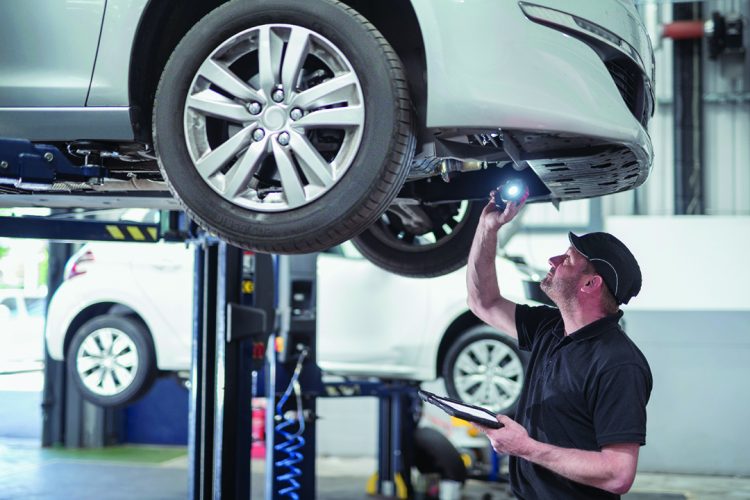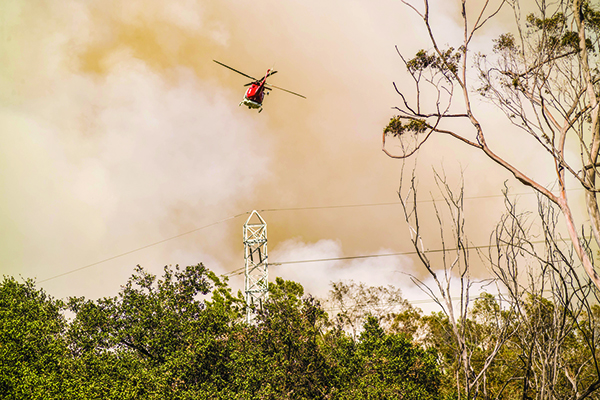After storm damage, stay protected when seeking repairs


When seeking repairs to their homes, vehicles or other properties, in response to weather damage, consumers should practice caution, and know how to protect themselves and their purchases. Consumers whose homes, vehicles or other properties that are damaged, will likely seek out repair contractors, but they should practice caution while doing so.
Many vehicle owners may be in need of an auto body shop for hail damage repairs. Consumers seeking repairs to their motor vehicle should work with their insurance company, to select the repair shop, if the work will be covered by insurance.
They can also ask for recommendations from friends, family and other people they trust. Search for online reviews of the company, and contact the Department of Agriculture, Trade and Consumer Protection’s (DATCP) Bureau of Consumer Protection, to check if a specific shop has a record of complaints.
Document all communications, transactions and experiences, including dates, times, expenses and the names of shop staff.
Unauthorized repairs or price increases, after the consumer received an estimate or quote, are not allowed. A shop may hold a vehicle until the consumer pays for repairs that were authorized, but cannot keep it if the consumer refuses to pay for unauthorized repairs. After work is complete, the shop must provide an invoice, describing all repairs, replaced parts (and their cost) and labor charges.
Door-to-door solicitors may not be a reliable resource for home repairs. The DATCP often receives reports of transient repair crews, showing up in the aftermath of storm damage. These crews, sometimes called “storm chasers,” go door-to-door in affected neighborhoods, using high-pressure tactics to solicit business.
A repair crew knocking on a consumer’s door and promising a quick fix may be tempting, but storm chasers have been known to provide poor quality work, or take payment and not complete any work at all.
Given storm chasers are often not from Wisconsin, if something goes wrong, it could be impossible for a consumer to get their money back. The DATCP encourages consumers to hire established local contractors, instead of risking their money and property on unknown, out-ofstate crews. Some tips for consumers include: Contact municipal officials to confirm a repair crew holds the proper permits to operate in the area, including door-to-door sales. Ask for contractor recommendations from trusted sources, such as friends, neighbors and insurance agents.
Contact a local building inspector, to check if permits are needed for the repair work and have them inspect the completed work, to verify it was done correctly, before making the final payment to the contractor. Make sure to sign and receive a written contract, which specifies what work will be done, what materials will be used, a start and completion date, and warranty details.
Request and obtain lien waivers from any contractors hired for every payment made for home repairs. Keep copies of all receipts, contracts, correspondence, warranties and written materials.
Wisconsin’s storm chaser law protects consumers and businesses against insurance fraud. In Wisconsin, contractors cannot promise to pay any portion of an owner’s property insurance deductible and cannot negotiate with an insurance company on behalf of a customer. Contractors can only discuss damages and costs with insurers, with the customer’s permission.
They must ask if the work is related to an insurance claim, before they enter into a contract and must notify customers of their right to cancel the contract within three business days, if their insurer denies any portion of the claim for work.
Contact the Office of the Commissioner of Insurance of Wisconsin, at oci.wi.gov or 800-236-8517, with questions about insurance agents, adjusters or companies.
For more information and consumer protection resources, or to file a complaint, visit ConsumerProtection. wi.gov or contact the Consumer Protection Hotline, at 800-422-7128.



